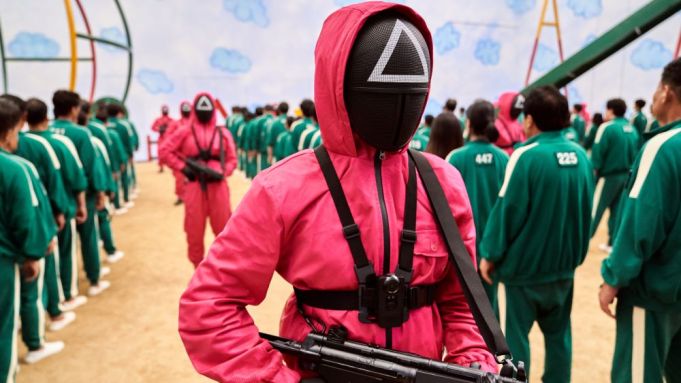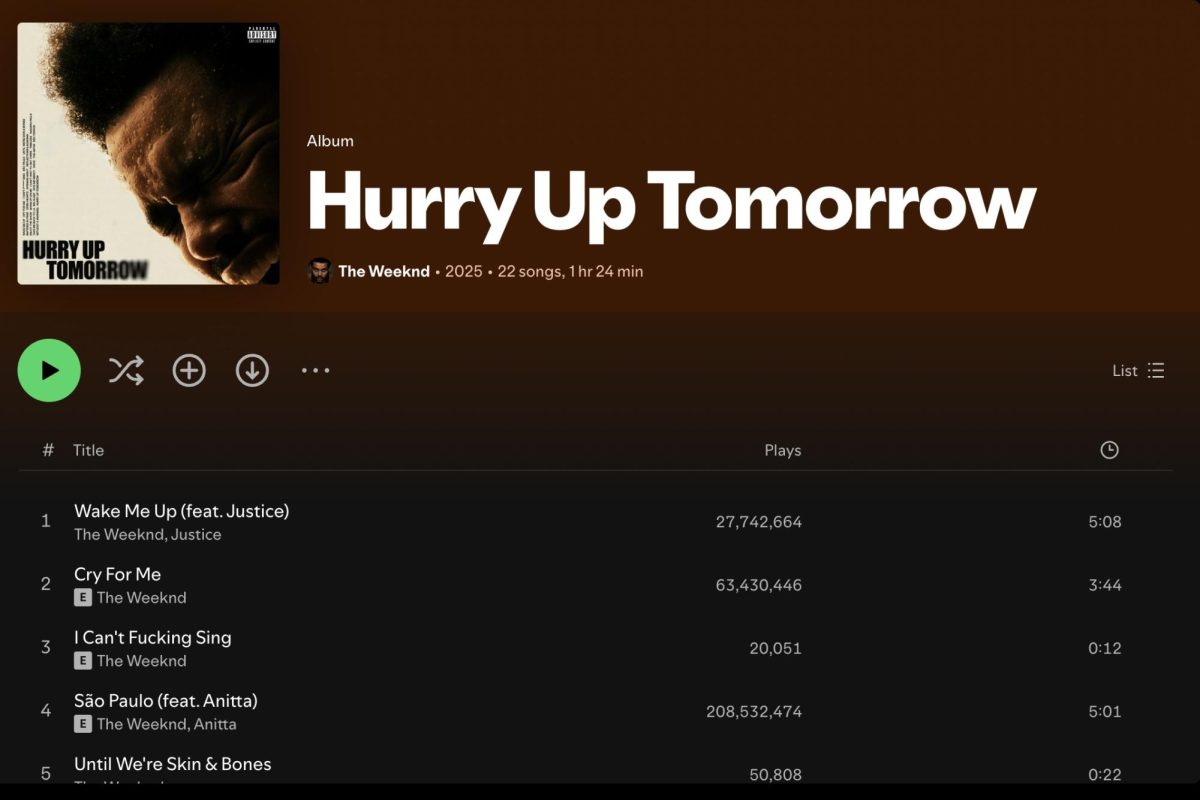The Korean Netflix television series “Squid Game,” released on Sept. 17, has slowly become a viral sensation over the past few weeks. Halloween costumes, memes and a surplus of TikToks have been shared all over the internet in lieu of the premiere.
The drama series, written and directed by Hwang Dong-hyuk, followed protagonist Seong Gi-Hun as he faced the repercussions of a serious amount of debt stemming from his gambling addiction. His desperation led him to accept an offer that seemed simple enough: win money by winning games.
Gi-Hun is one of 456 strangers who awoke in a remote arena. All of the characters came with different reasons for being there. Whether it be debt or poverty, they needed the money.
The games were revealed to be simple schoolyard games such as “red light, green light” and others that Gi-Hun played often as a child. However, the stakes were much higher; if a player lost or didn’t finish a game, they could have faced very deadly consequences.
The entire series script was written and filmed in Korean, but Netflix provided subtitles and dubbed-audio options for viewers to watch in English as well as Spanish.
This feature was Dong-hyuk’s first Netflix original series, but his story of determination is already well known. Twitter posts revealed that Dong-hyuk wrote “Squid Game” in 2009, and his script was rejected by studios for 10 years. The show is now on track to become the most-watched show on Netflix.
Additionally, the show has influenced Netflix to spend over $500 million on Korean content for this upcoming year. While Korean media has picked up in popular culture in the past year or so with films like “Parasite” and “Minari,” no others have had such an overwhelming impact worldwide.
While the battle royale story is not a new concept in film and television, “Squid Game” kept its audience brimming with anticipation and anxiety at every turn. The raw emotion conveyed through the actors attached viewers to their respective characters, making it very easy to rally behind specific players of the Squid Games.
Heavy emphasis was additionally placed on class division and inequality. The writing took ironic liberties in every character demanding equal treatment, while almost all had some form of advantage over one another.
The architecture, color design and costuming should all be praised as well. Bright, contrasting colors and elaborate set designs helped transform the environment into a sleek, yet haunting, maze. The simplicity of the costume design also made the show very easy to market in the form of Halloween costumes.
Violence was another prevalent theme throughout the series and was displayed very graphically in some episodes. While it could feel overabundant at times, it did begin to feel essential for understanding the many different emotions that were being portrayed, whether that was anger, chaos or grief.
“Squid Game” is available to watch on Netflix for anyone with a subscription.















Sierra Bennaton • Nov 8, 2021 at 3 -08:00.11.
Love that show